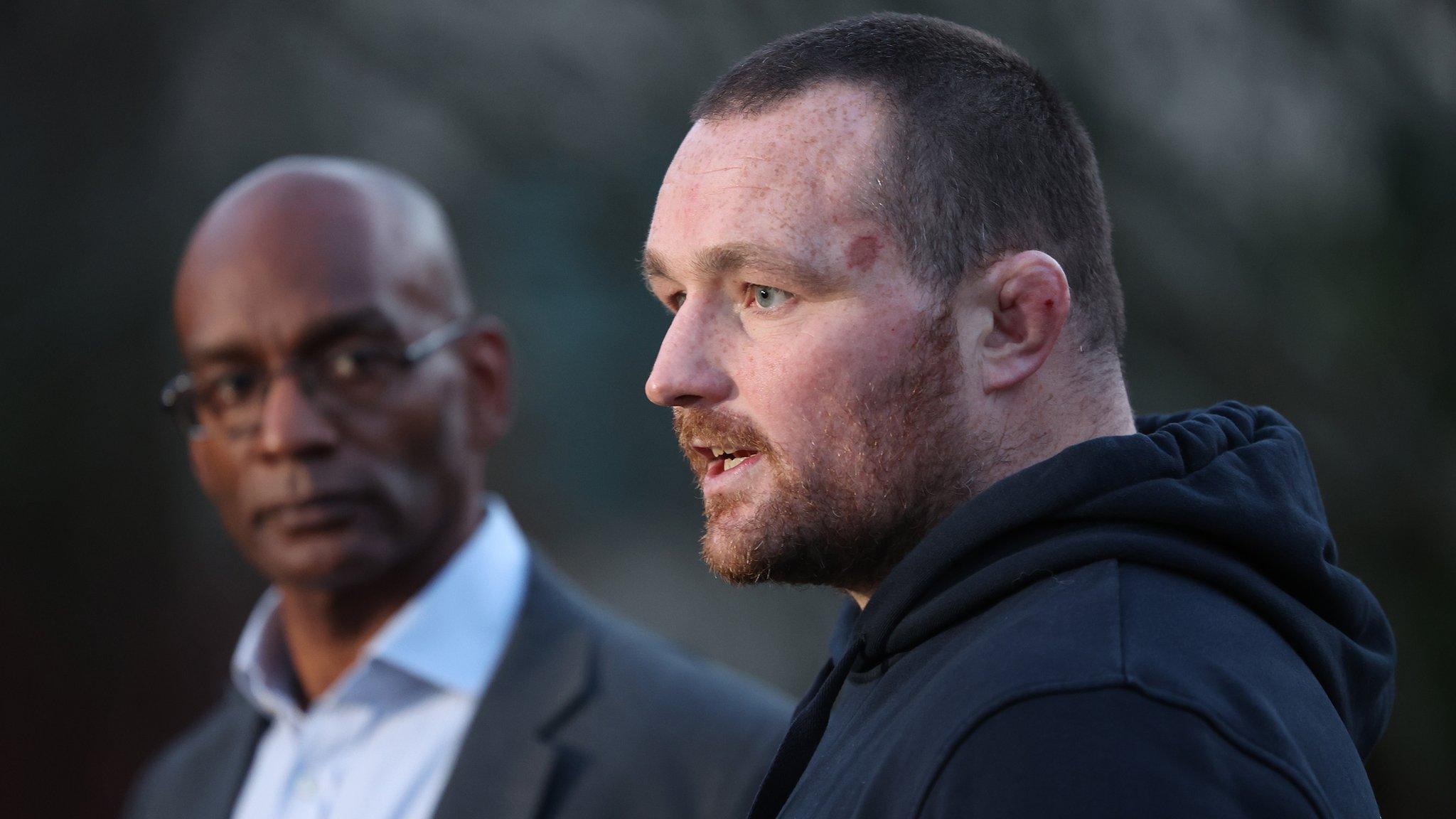Welsh rugby: Does it matter if other countries develop your players?
- Published

Argentina football icon Lionel Messi was developed by Spanish giants Barcelona and Wales superstar Gareth Bale came through Southampton's academy
Lionel Messi helped Argentina win football's World Cup, Angharad James has 100 international caps and rugby's Gareth Edwards is a national hero.
They all have one thing in common - they've starred for their country after being developed in another.
Does that matter? And how would sports fans feel if they had to rely on their fiercest rivals to develop their next generation of stars?
These are the worries that are facing the future of Welsh rugby.
Wales have just returned home after reaching the quarter-finals of the 2023 Rugby World Cup, where Welsh rugby's poster boy Louis Rees-Zammit was their top try-scorer.
The 22-year-old wing is the superstar spearhead of a growing breed of promising Welsh rugby players honed in England - and playing for English clubs - but will represent Wales on the international stage.
Rising star Tommy Reffell is also among the 11 Welsh players fully or partially developed outside Wales - 10 of those in England - included in Wales' 33-man World Cup squad this year.
Compare that with just two at the 2011 Rugby World Cup.
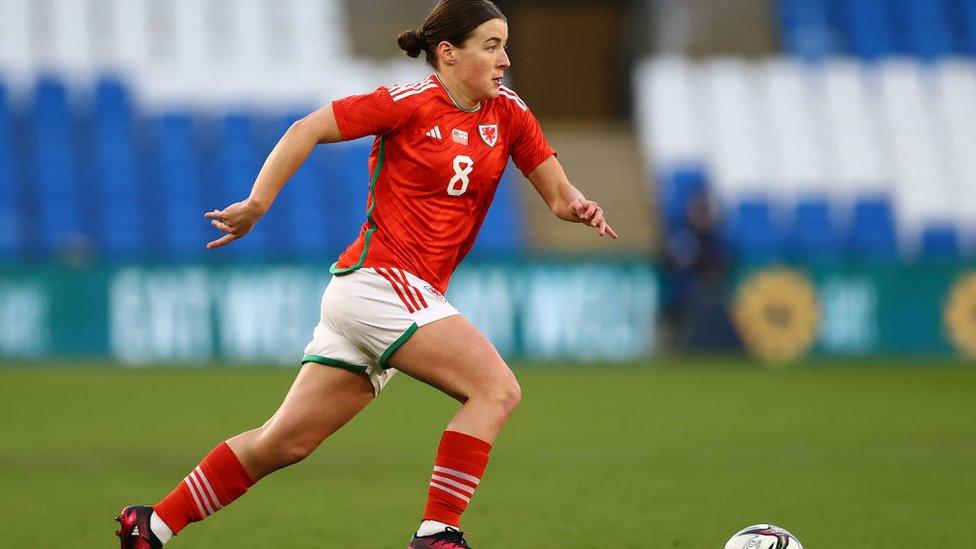
Tottenham Hotspur and Wales midfielder Angharad James was developed at English football giant Arsenal's academy
One top academy coach claims the number of talented young players crossing the Severn Bridge has gone "from a trickle to a flood".
The Welsh Rugby Union (WRU) said it's made "huge changes" to increase and retain talent and made a "good argument" for players to stay.
Warren Gatland admitted Wales' international golden era that he oversaw - winning three Six Nations Grand Slams, four Championship titles and two World Cup semis - "papered over the cracks" of Welsh rugby's issues.
The question is whether it matters if an international team's top players are finessed in another country - or in Welsh rugby's case, by their biggest rival.
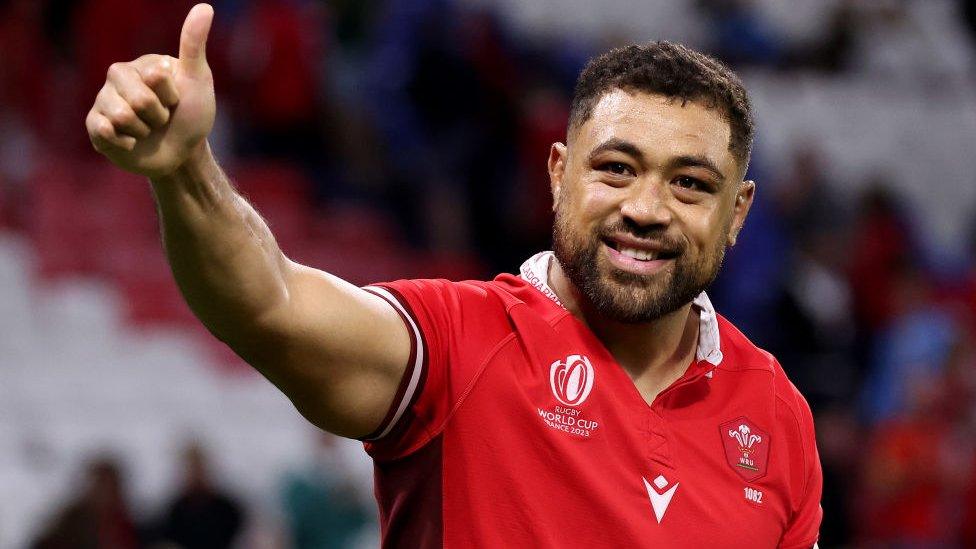
Taulupe Faletau is one of Wales' greatest ever players and spent the final years of his rugby development at an English college
Cardiff's academy manager Gruff Rees has told BBC Wales Investigates that despite "good education opportunities" in Wales, the "trickle" of players leaving in previous years has "become a flood".
"There was a lack of connection that happened, probably through a decade or so, that while the Welsh national team were serviced excellently, I think everything else lacked coherence and connection," said the former Ospreys assistant coach.
"I think the union has been under-resourced supporting regional age-grade programmes, then some of the national age-grade stuff has suffered as a result.
Wales coach Warren Gatland said it is time for Welsh rugby to "reset" to help unearth the stars of tomorrow
"No-one is really making us as regions accountable to what we do."
Wales' four professional teams - of which three were in the bottom four of last season's United Rugby Championship - are the ones who will suffer from any drain of young talent to England.
Cardiff are one of world rugby's most famous clubs, where the likes of rugby legend Edwards, Barry John, Gerald Davies and Cliff Morgan all strutted their stuff.
They were runners-up in the first European Cup back in 1996, the first Welsh team to win a European trophy in 2010 and Wales' best performing league side last term.
But some of the UK's biggest and most famous clubs have had financial difficulties in recent years, with London Irish, Wasps and Worcester Warriors all going into administration.
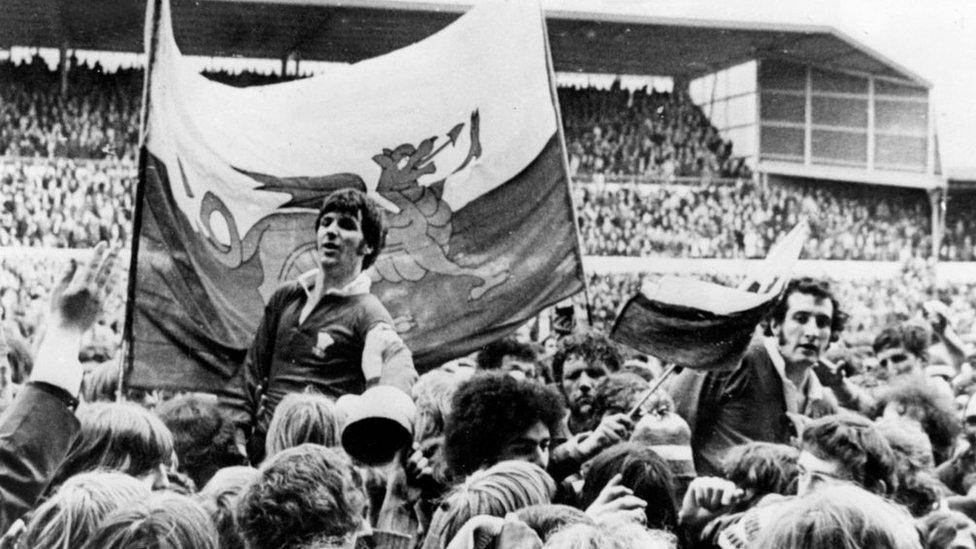
Cardiff's Barry John and Gareth Edwards were rugby superstars during Wales' 1970s glory years after Edwards was developed at Millfield School in England
Cardiff's own chief executive admitted his club had suffered "cashflow pressures" before getting their first full instalment of the new financial deal with the WRU.
"I'm desperately committed to keep [who] I perceive at 16 to be the best in Wales, but we haven't got the financial ability to contract everyone," added Mr Rees.
"We're still stretched on different things, we're running more programmes with less staffing than we ever have done."
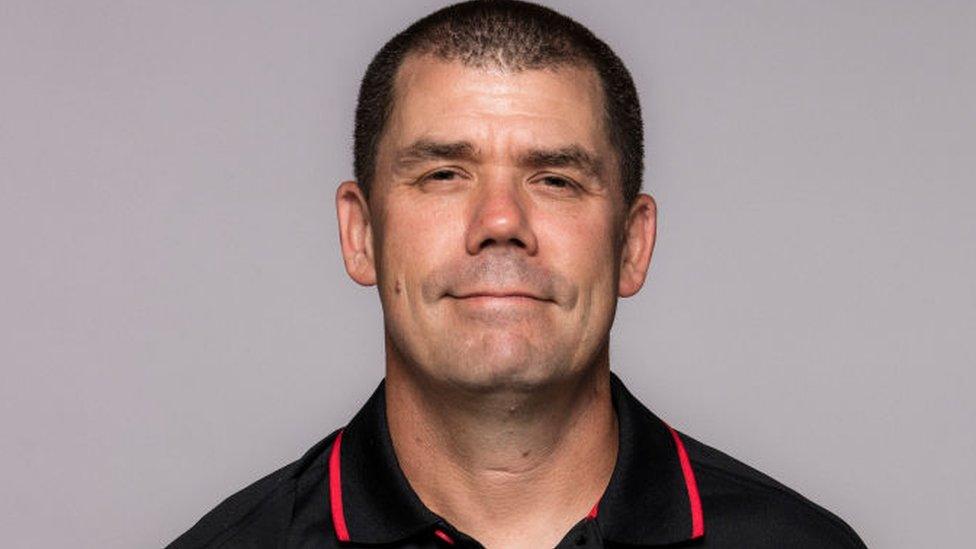
Gruff Rees has worked in Welsh rugby for almost 25 years and was also in Canada's coaching team at the 2019 World Cup
English sporting colleges and academies have capitalised on the financial uncertainty, and have attracted some of the Welsh players who are determined to do anything to make the professional grade.
"I thought when coming here I was going to pick up an English accent, but I ended up having more of a Welsh one when I went home," joked Evan Minto, one of the young Welsh expats at Hartpury College near Gloucester.
The promising Wales under-18 and Dragons academy number eight moved from his home in Pontypool to the renowned Hartpury academy last year.
"Everyone I speak to says if you want the best education, alongside rugby as well, Hartpury is the place," said the 17-year-old.
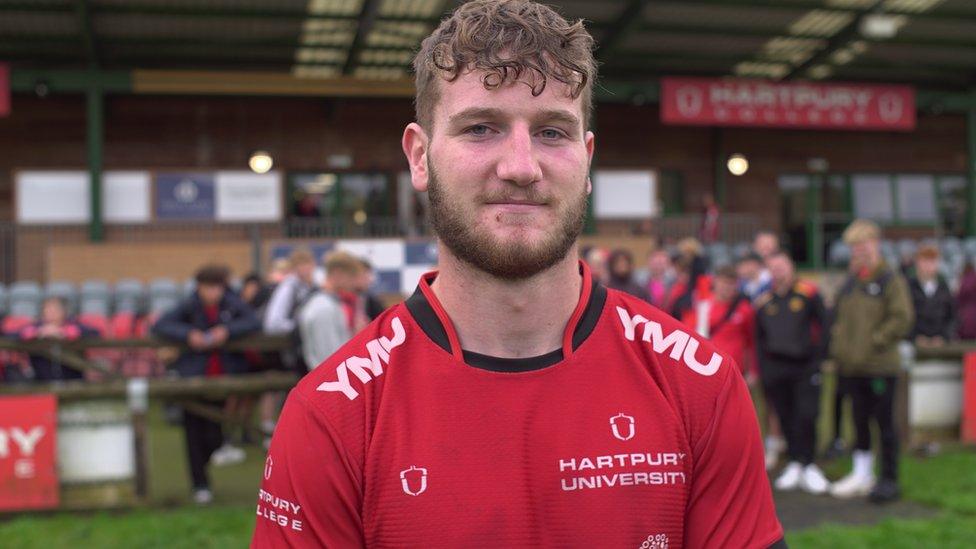
Wales youth player Evan Minto moved into the English system in the hope of becoming a professional rugby player
"There's nothing quite like this in Wales and obviously it's so close to the border."
Minto is not alone.
Ten of Hartpury's 15 first-team starters for the 16 to 18 year old side are from Wales - and hoping to follow Hartpury graduate Rees-Zammit into Wales' senior team.
"We've had a lot of successes with Welsh students coming here, like Louis Rees-Zammit," said Wayne Thompson, coach at Hartpury's rugby academy.
"That does help build the brand. I like to see it that we're helping to develop these students and keeping them in the game."
Rees-Zammit, who is also a British and Irish Lion, started his youth career at Cardiff's academy and joined English heavyweights Gloucester after his own stint at Hartpury.
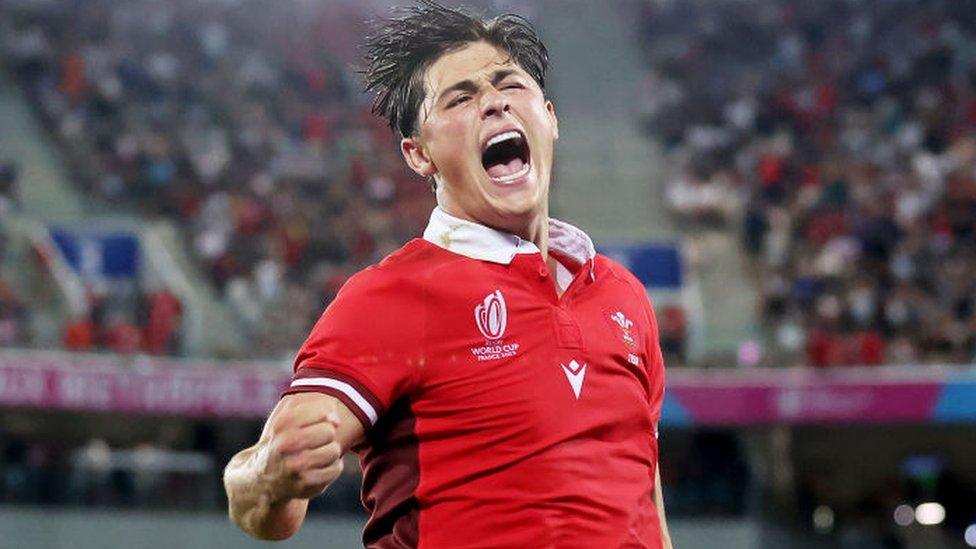
Gloucester star Louis Rees-Zammit was one of the 2023 Rugby World Cup top try-scorers and has 14 ties in 31 Wales appearances
The WRU said it was working to "maintain the connection" with players who choose to leave Wales and finish their development in England.
"We are not going to stop everybody," said WRU performance director Huw Bevan. "But we need to make sure that we provide a good argument for them to stay.
"If we make sure our system is equal to that in terms of facilities and resources, my preference would inevitably be for them to stay in Wales."
One sports coaching expert said keeping the best players was not just about national pride, but ensuring the top rookies raised their game to bring the best out of each other.

Wales put in a performance at the Rugby World Cup, but can it stay at the top of the game? BBC Wales Investigates looks into how Welsh rugby is developing the next generation of talent.

Watch on BBC One Wales on Wednesday at 20:00 BST or catch on BBC iPlayer.

"Developing your players is an absolute necessity to ensure that the level of competition is as high as it possibly can be, so the best are playing the best," said Dr Ed Cope, lecturer in sports coaching at Loughborough University.
"But those that aspire to be the best and also playing against the best - and therefore have a reference point for where they need to get to."
Dr Cope said the big danger from a Welsh perspective is players becoming "part of the English system" due to a developmental "vacuum" at youth level and graduating to senior teams.
"There needs strategic attention paid to ensure those players are able to engage in competition which is appropriate, relevant and offering that suitable level of challenge," he added.
BBC research found almost 50 of Wales' 225 secondary schools have axed sixth form rugby teams in the last 20 years.
"Where your talent pool is relatively low, you need to think of ways that you keep that talent pool as wide as possible for as long as possible," added Dr Cope.
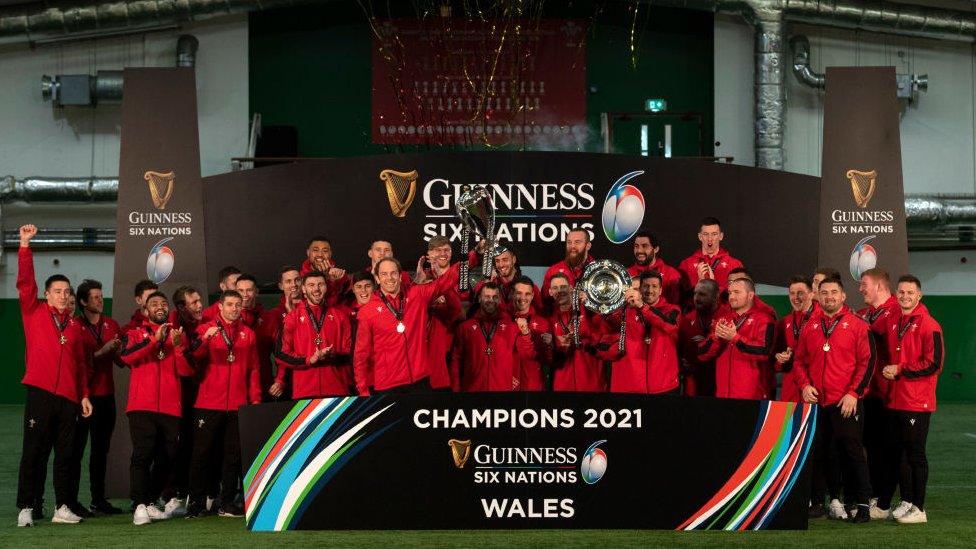
Wales won their fifth Six Nations Championship in 16 years in 2021
"You cannot afford to have a talent development system which is causing players to drop out or cut players unnecessarily."
The WRU said the regions and national team would benefit if it got its player development pathway right.
"We must have been doing something right to be as successful as we have been with the limited population we've got relative to other countries," added Mr Bevan.
"We want to collaborate with the regions and identify what can we can do better, if we can improve the academy system and produce more and better players."

BLACK MUSIC WALES: The artists who pioneered black music in Wales
WALES' HOME OF THE YEAR: Which home will be crowned the winner?

- Attribution
- Published20 October 2023

- Attribution
- Published22 July 2023
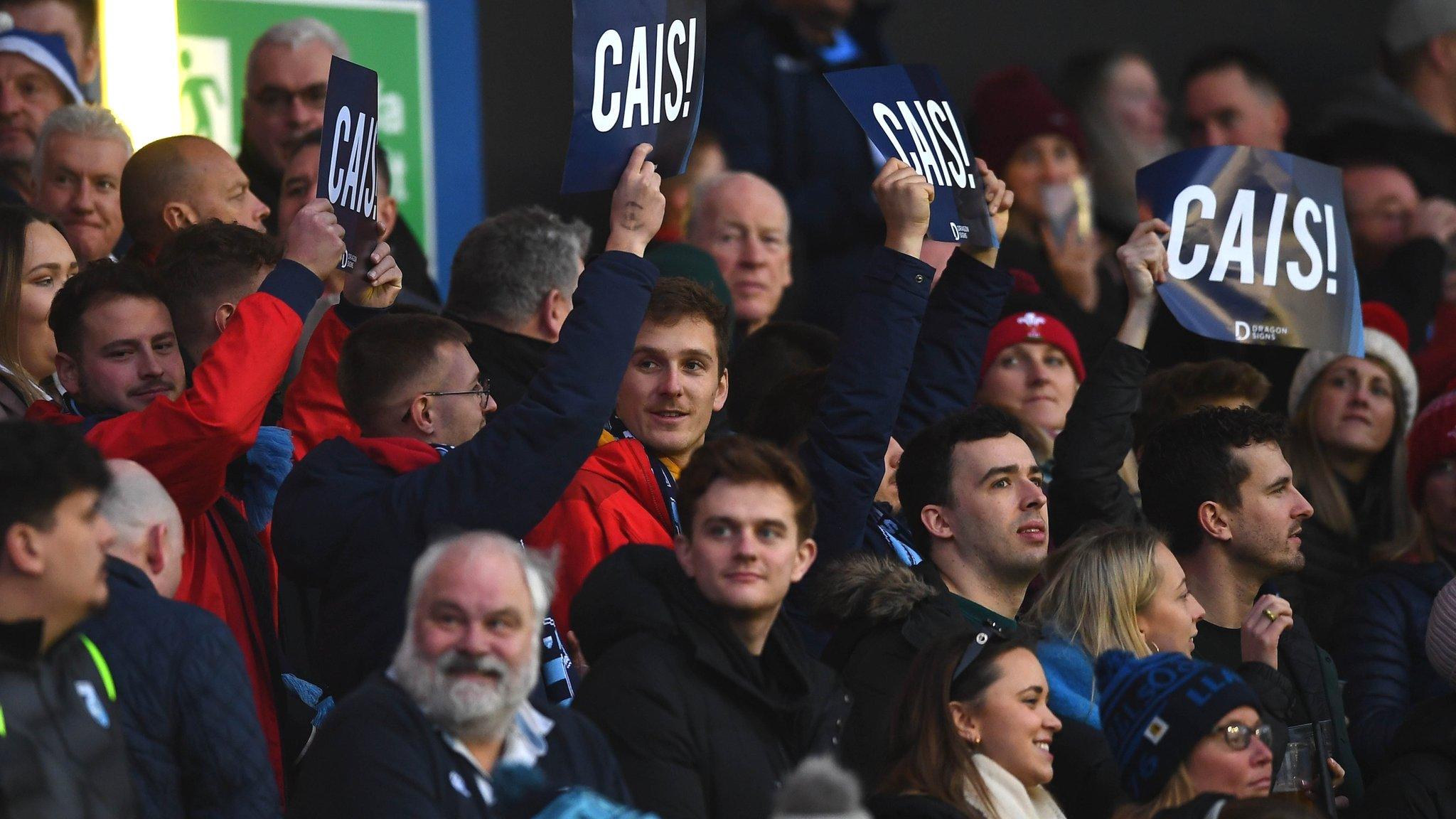
- Attribution
- Published14 June 2023
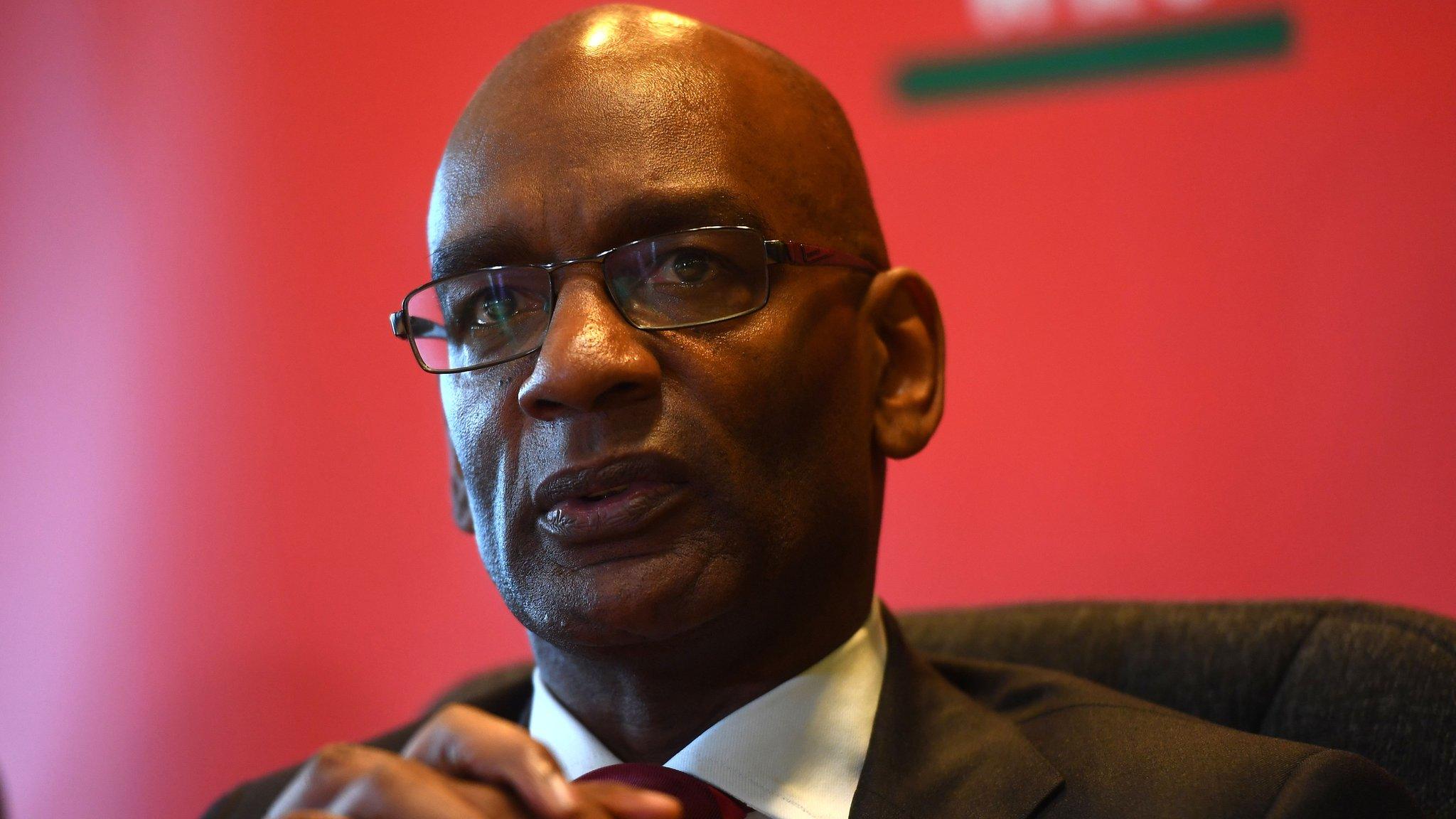
- Attribution
- Published3 May 2023
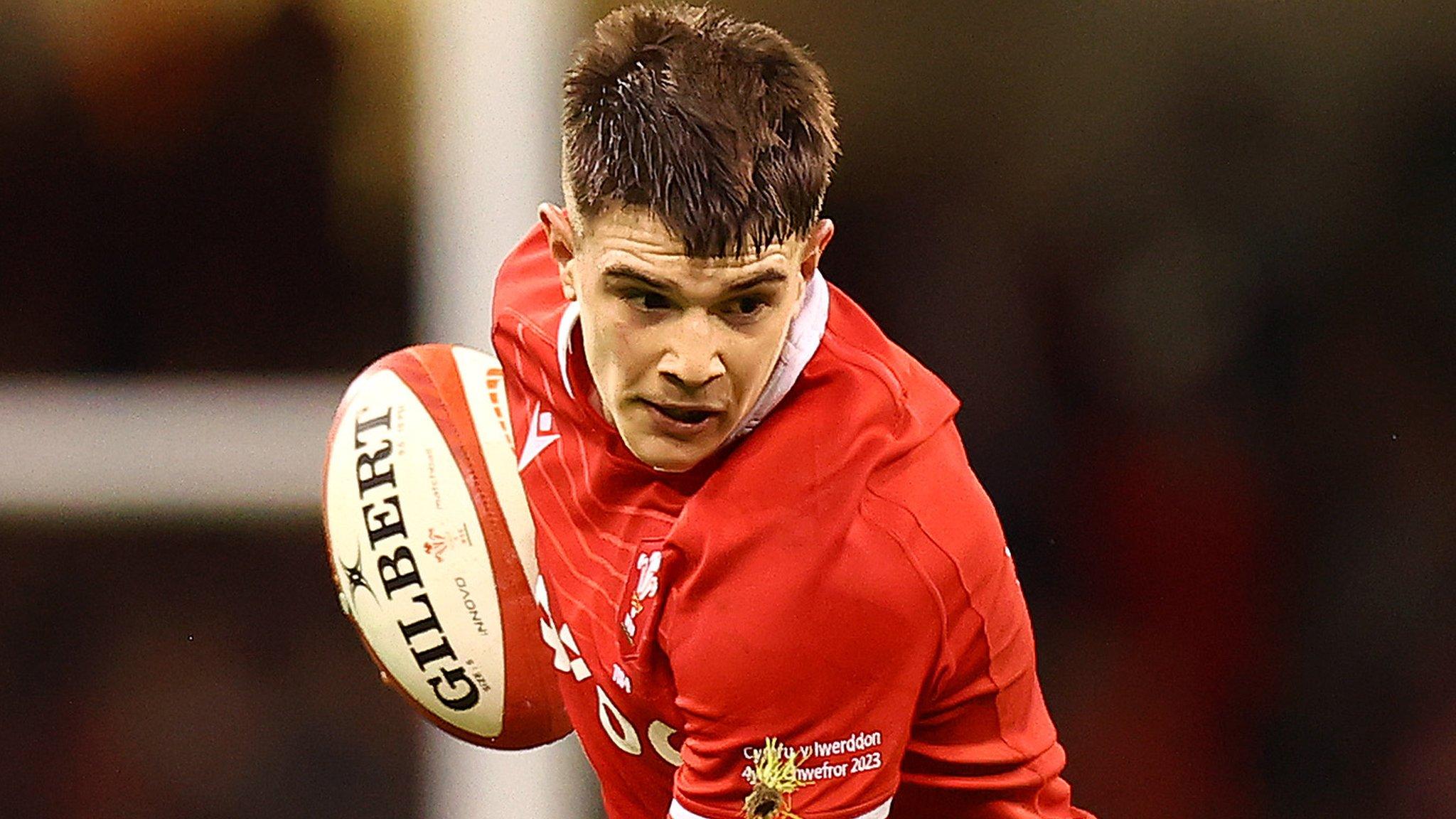
- Attribution
- Published2 April 2023
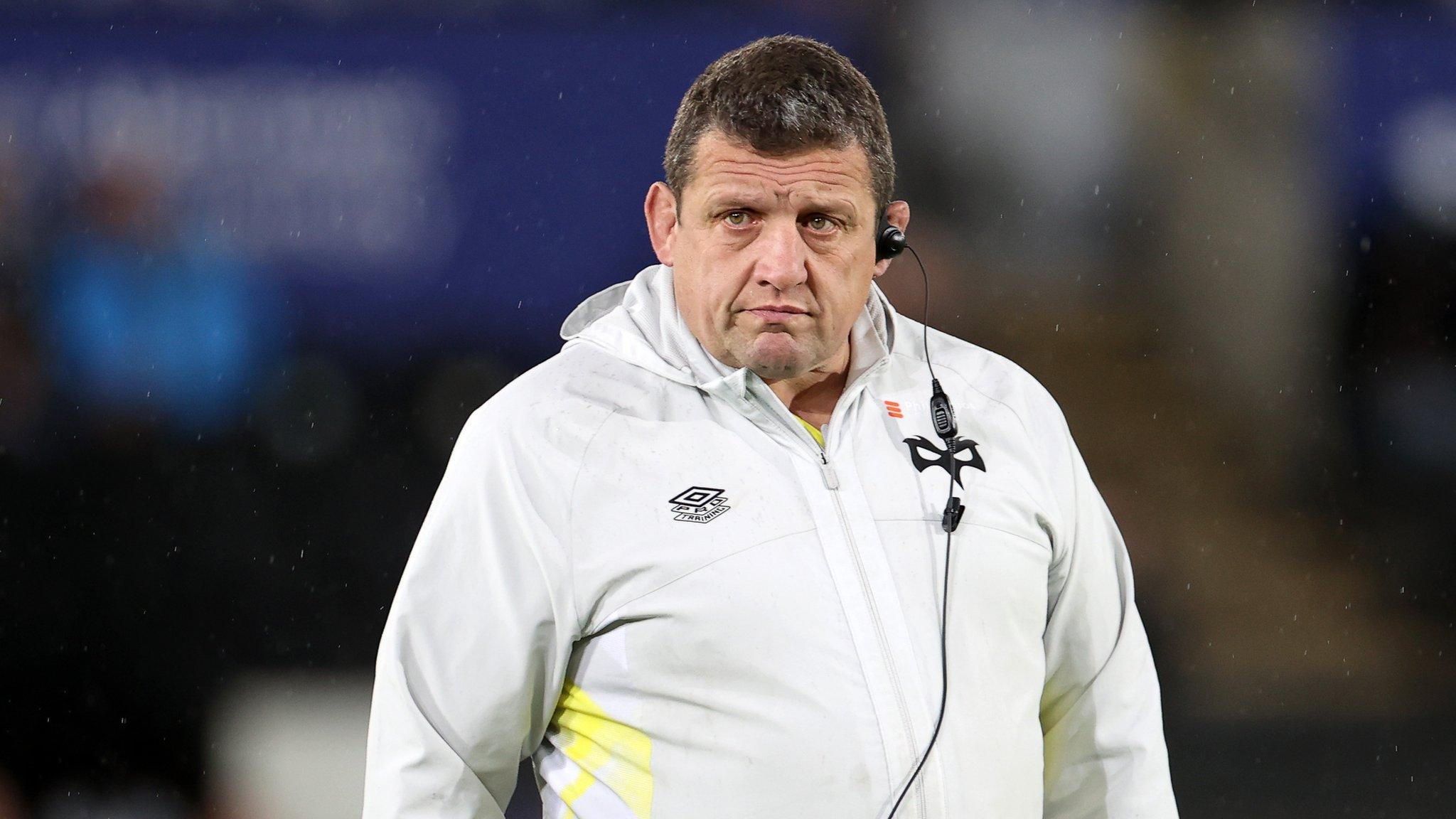
- Attribution
- Published23 February 2023
